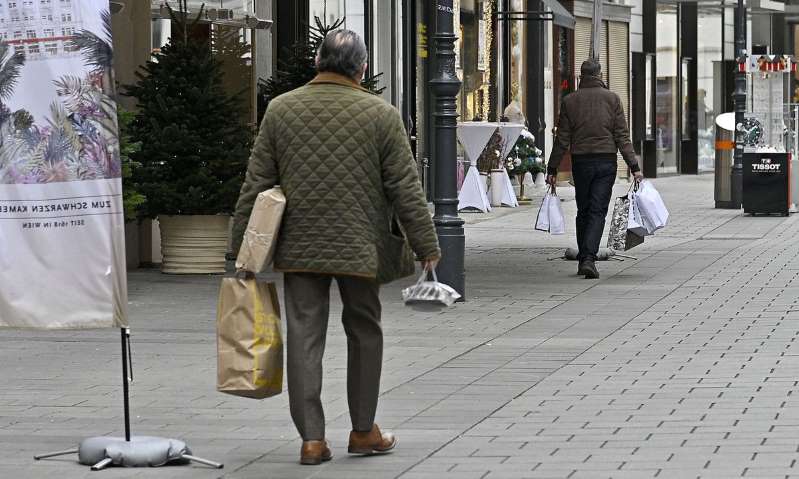
The corona crisis divided the Austrian retail sector in two last year. Lockdown, home office and closed restaurants have resulted in people shopping significantly more in the supermarket and ordering online. In other retail sectors, however, the measures to limit the occurrence of infections had exactly the opposite effect: clothes or shoes remained on the shelves like lead.
While the grocery trade achieved real sales growth of seven percent last year, sales in the retail sector apart from basic supplies fell by an average of 3.9 percent. The clothing and shoe trade was hit particularly hard, with real sales declines averaging more than a fifth (22.4 percent). This is based on preliminary data from Statistics Austria from Thursday.
Corona measures are causing online retail to boom
In addition to the grocery trade, the economic winners also included mail order and internet sales with real sales growth of almost 17 percent. Furniture, do-it-yourself supplies and electronic devices were also in great demand in 2020 as a whole, with the result that the stores achieved an average (real) turnover of around four percent more. In pharmacies and cosmetics retailers, sales fell slightly by 1.8 percent during this period. Sporting goods retailers or book stores, which the statistics summarize in “other retail trade”, also had to accept real sales declines of almost five percent.
The year 2020 had one more shopping day than the previous year with 303 sales days, but depending on the industry, the number of sales days decreased by up to 73 shopping days due to the Corona measures, according to Statistics Austria.
Taken together, the Austrian retail companies (excluding motor vehicle trade; including petrol stations) achieved a nominal increase in sales of 0.1 percent last year. Taking into account the price development, a decrease in sales volume of 0.3 percent was recorded. In December, the nominal increase in sales was 0.9 percent. Adjusted for inflation (real) there was a slight increase in sales of 0.8 percent.
No “spring awakening” expected in retail
After six weeks of state-ordered closings, business will reopen next Monday. Ernst Gittenberger from the Institute for Trade, Sales and Marketing at the Johannes Kepler University Linz (JKU) does not see a “premature spring awakening” for the stationary retailers: closed catering and the obligation to wear a mask would have a negative effect on the shopping experience, length of stay and expenses, according to the trade expert . In addition, the high savings rate, high unemployment and general consumer uncertainty would rather speak against it. However, he sees the expected high discounts as the driver, especially since retailers have to empty their warehouses.
Rainer Will from the trade association appeals to politicians to keep the shops open in the long term: “We are not a corona hotspot”. In retail alone, the number of unemployed rose by a third in the previous year due to the corona. 10,000 trading companies are de facto insolvent, 100,000 jobs in the industry are shaky, so Will. Even if the shops open again on February 8th, the trade association is expecting weekly sales losses of around 250 million euros. Only part of the lost sales can be made up, a lot is shifting to online trading or is lost at all.

